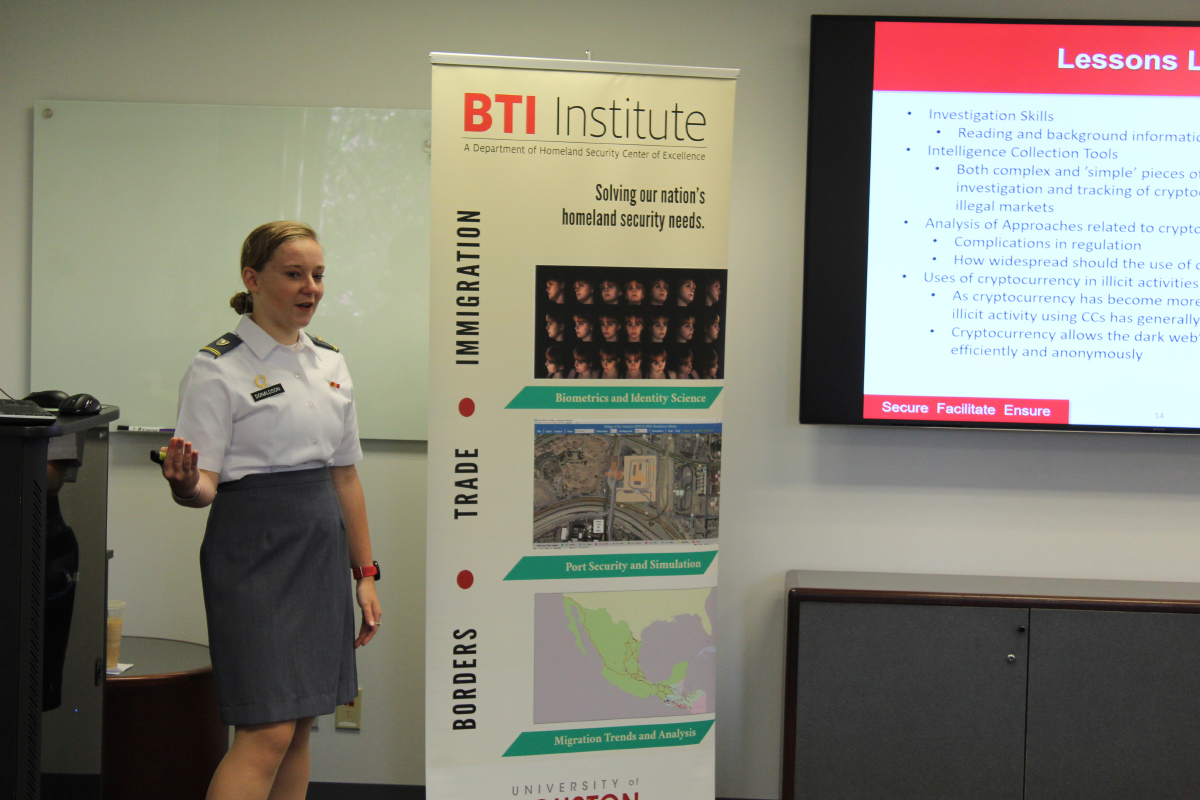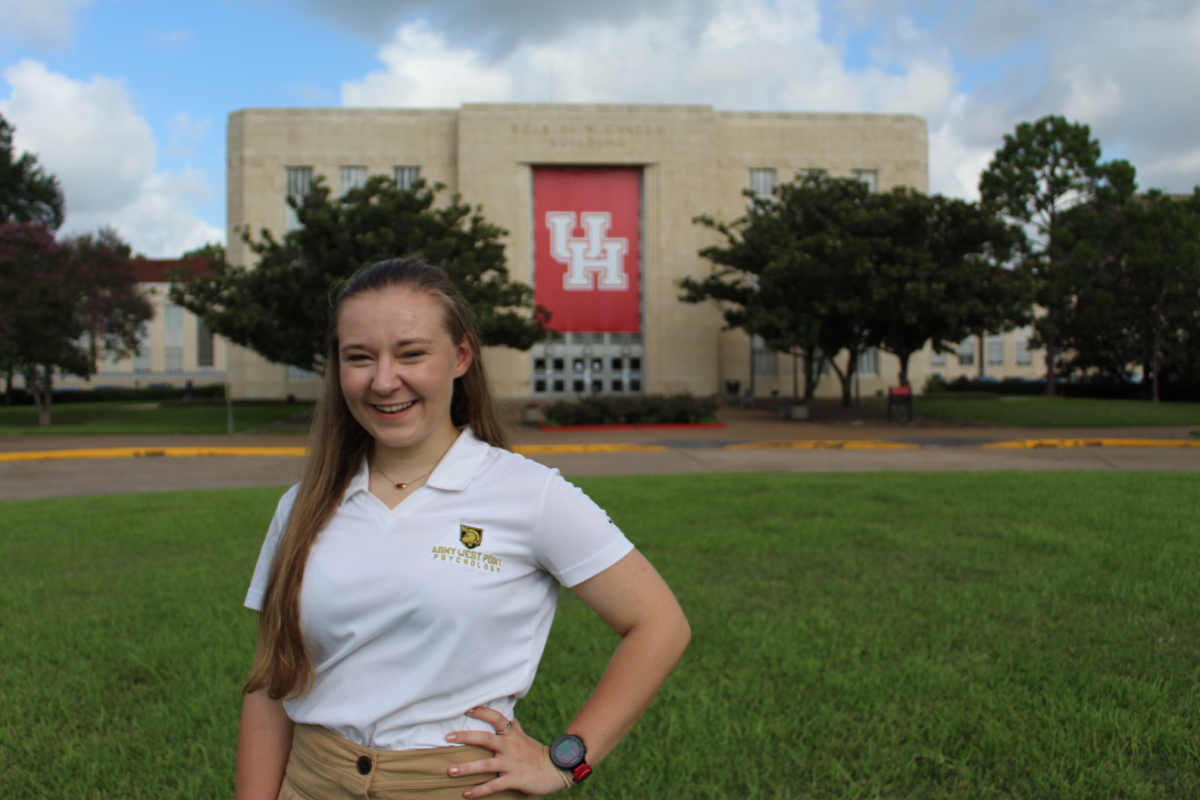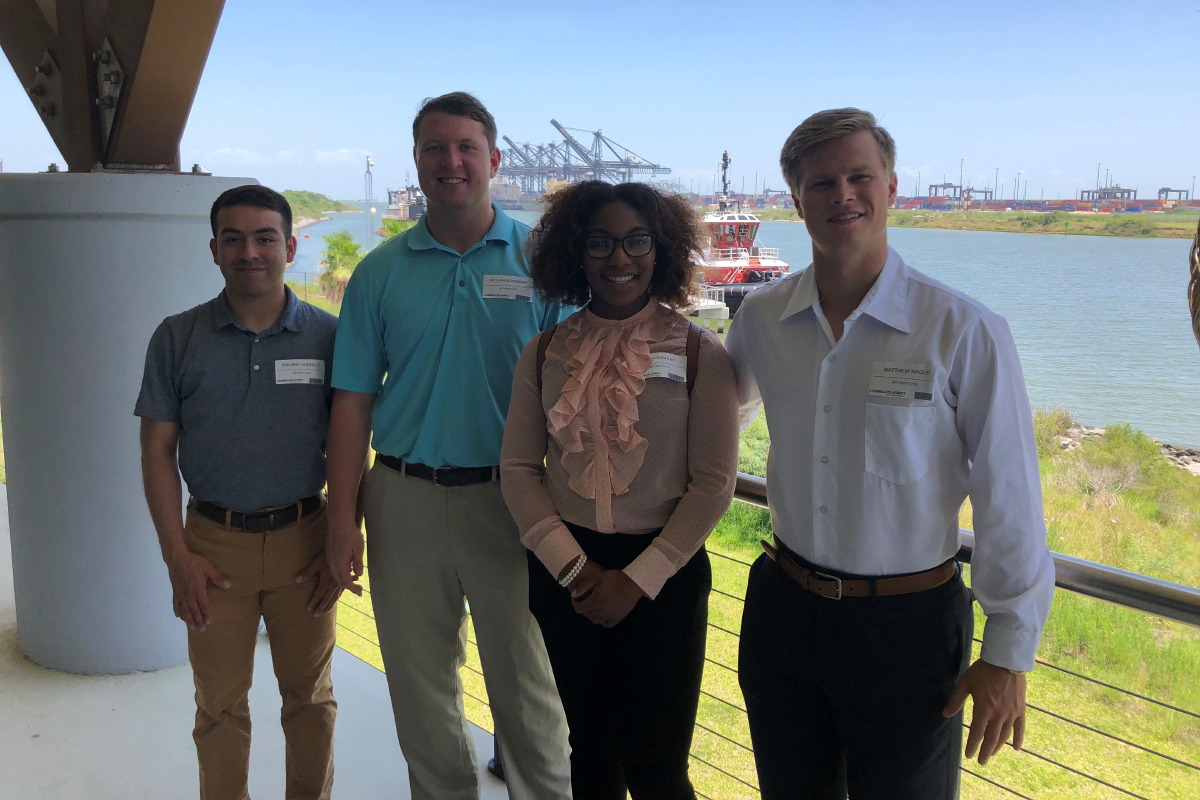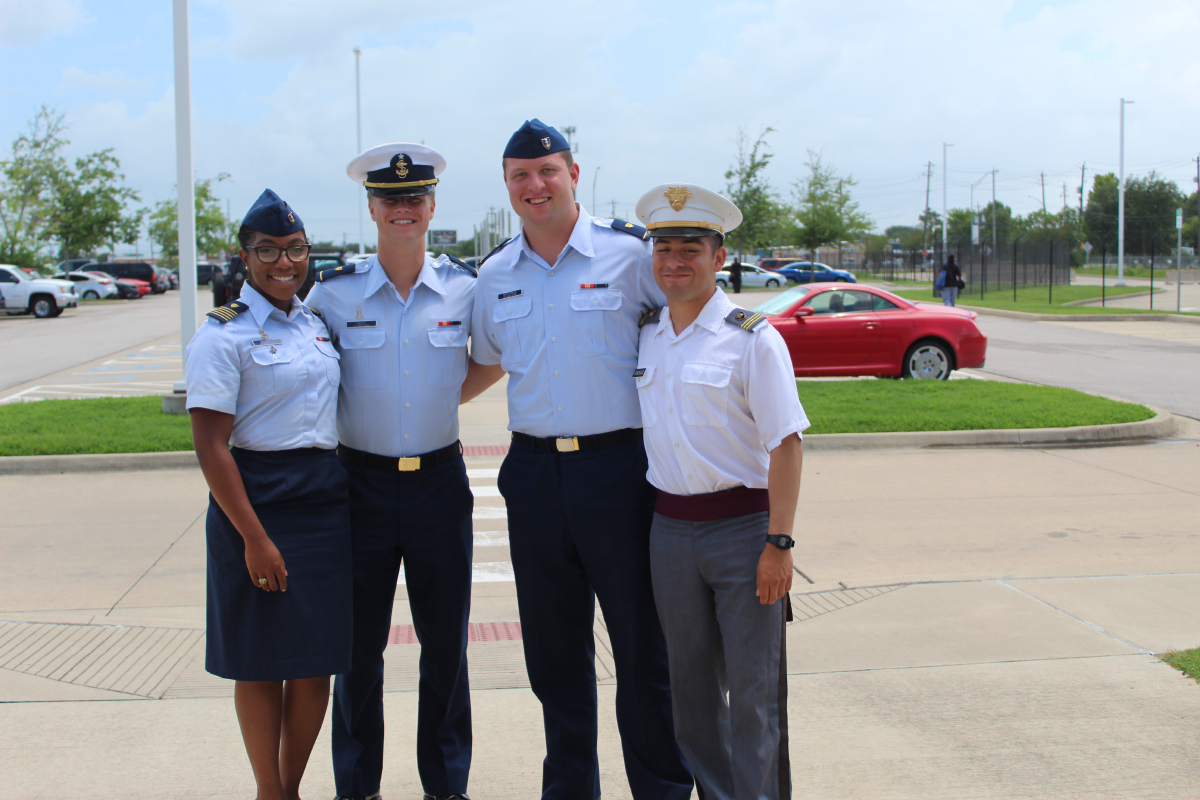The BTI Institute hosted four cadets from the United States Coast Guard Academy from 5 July to 16 August 2020. The cadets were paired with a mentor for their research project and briefing. The cadets stayed on the University of Houston campus and conducted their research either in person or remotely.
In addition to their research projects, the cadets toured USCG Sector Houston-Galveston, Space Center Houston and the NASA Johnson Space Center, and other Houston attractions.
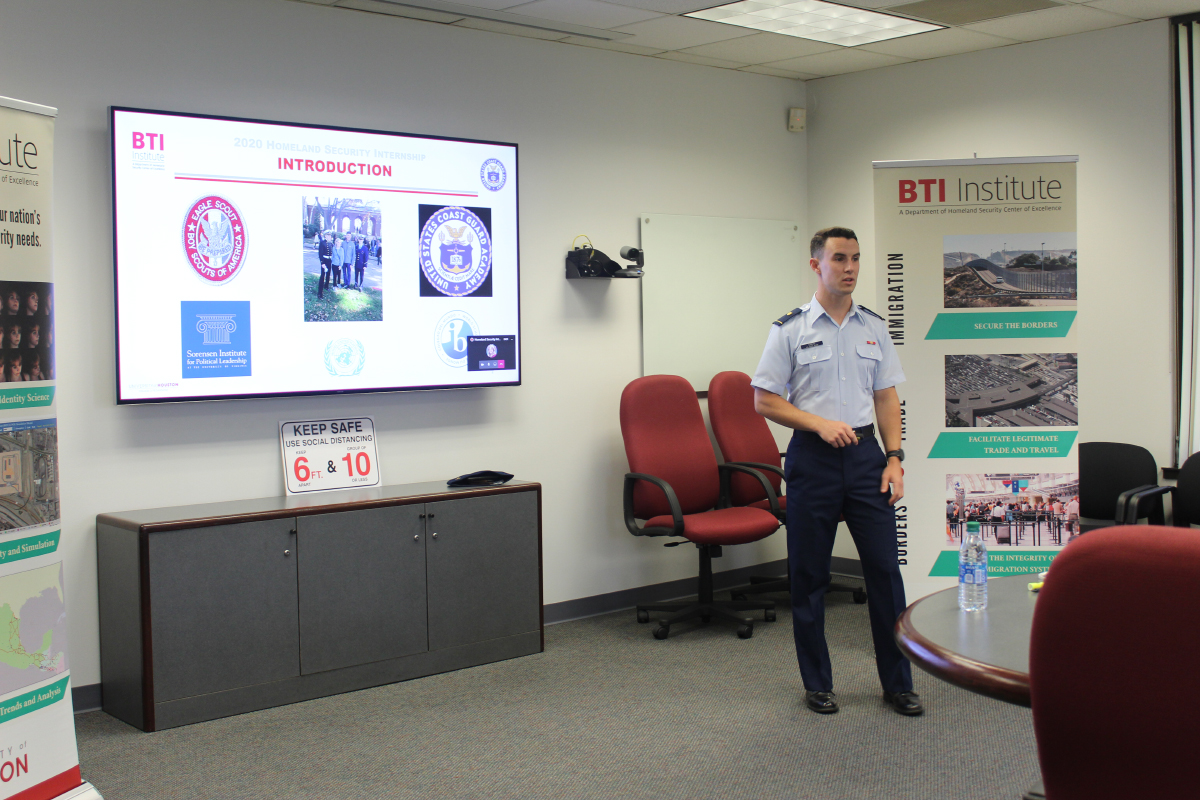
Oliver Simon, Cadet 1/c, United States Coast Guard Academy
Research Mentor: Kevin Clement, Executive Director of Strategic Partnerships, University of Houston College of Technology
Project: Maritime Port Resilience
Focus: The project focused on creating a regional maritime disaster resilience action plan. While there is currently a national resilience framework, that framework is not focused enough on the complexity of the maritime port. Cadet Simon conducted 16 interviews to focus on the threats associated with maritime ports. Through those interviews, the threats list includes natural hazards (climate change, health), technological hazards (cybersecurity), and manmade threats (terrorism, funding).
"Economic competition and the majority of commerce in trade is focused on the maritime sector. With that comes trillions of dollars in trade and even the smallest incidents at a port can have a billion-dollar impact."
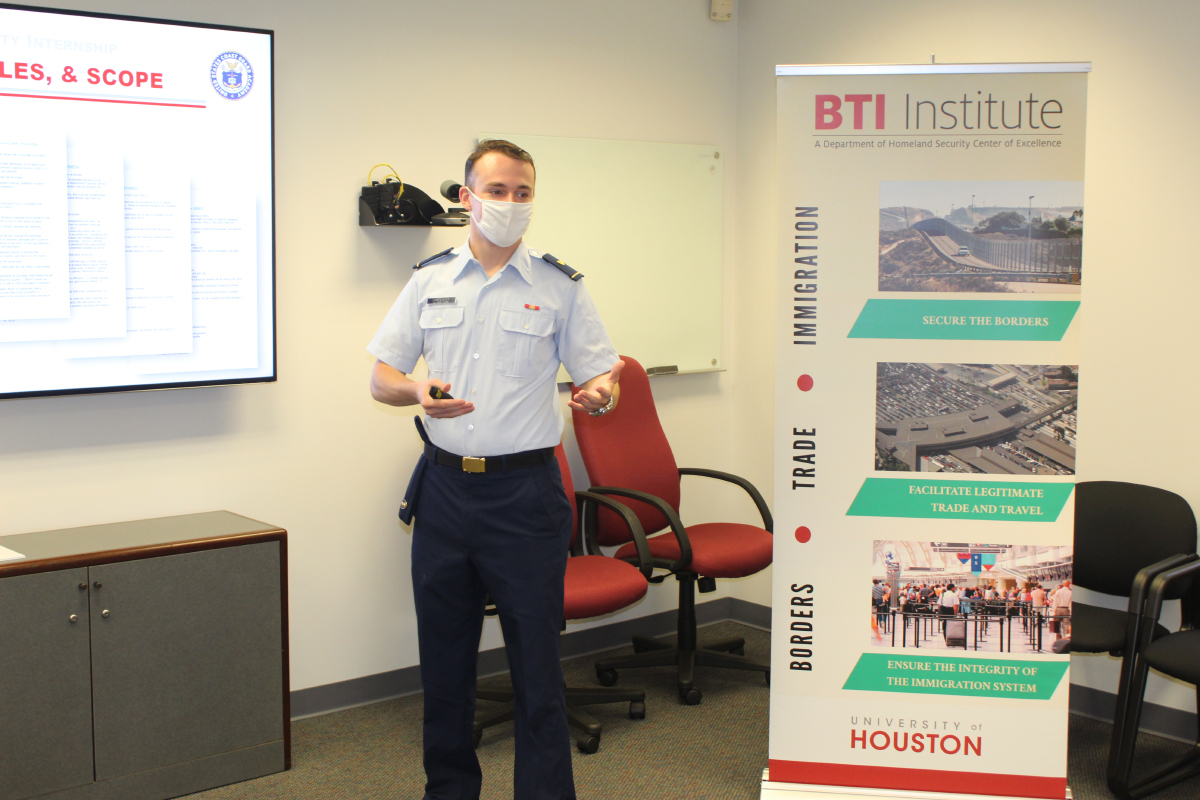
Jackson Carpenter, Cadet 1/c, United States Coast Guard Academy
Research Mentor: Kevin Clement, Executive Director of Strategic Partnerships, University of Houston College of Technology
Project: Complex Coordinated Terrorist Attacks and Active Shooter Incidents
Focus: The project focused on after action review recommendations and processes that can be built based on the lessons learned from those AARs. Cadet Carpenter was involved in developing drill cards, which is a document used to walk an emergency responder through performance steps based on the current conditions, such as receiving a call about a suspicious package.
"AARs allow the identification of common themes across different incidents that can provide honest, objective, and organized recommendations to improve organizational responses."
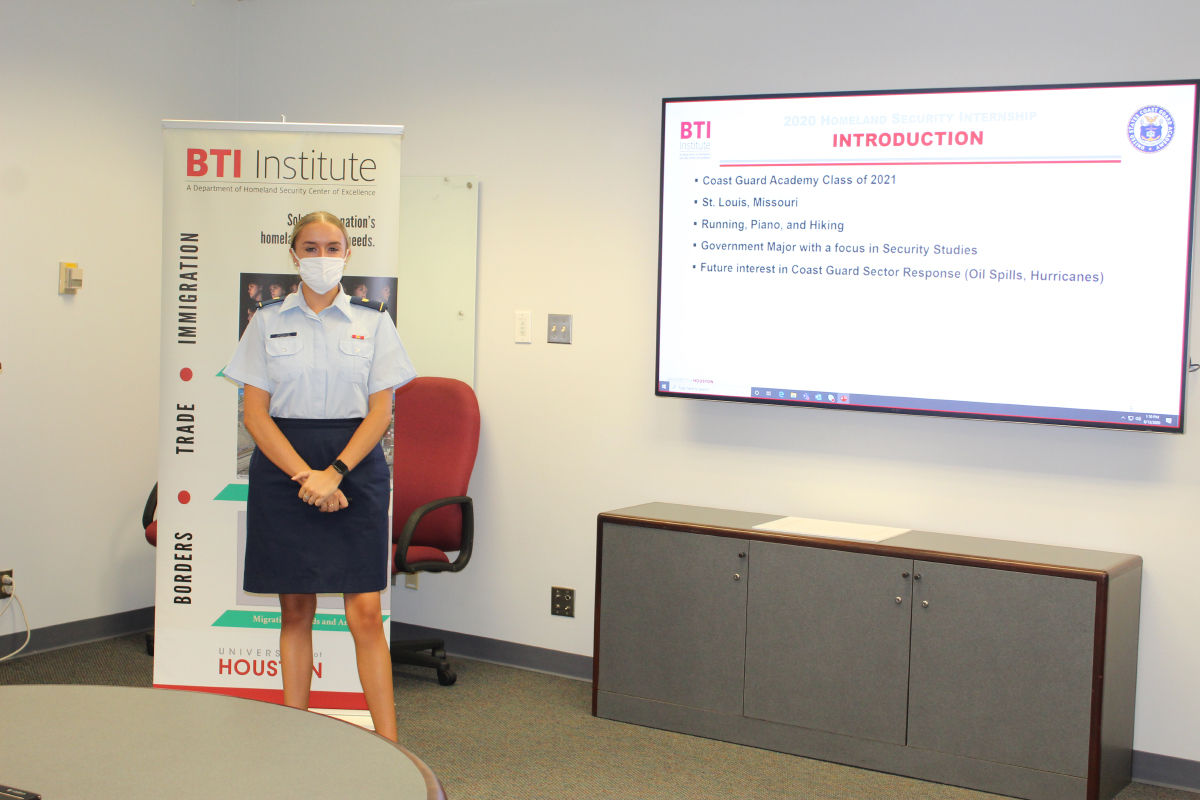
Erin Schultz, Cadet 1/c, United States Coast Guard Academy
Research Mentor: Gary Hale, Voir Dire International, LLC
Project: ArcGIS Analysis of Migrant Caravans from the Northern Triangle Countries
Focus: The project studied the hypothesis that U.S. and Mexico immigration policies appear as reactive to the caravan phenomenon. Migrant caravans originating in Central American countries south of Mexico were not seen before 2017. The caravans were configured as a collective, simultaneous and organized movement of thousands of people, for which the U.S. and Mexican governments were not prepared to process. The project looks to caravans as a whole and the factors that contribute to the formation of a caravan, not just individual migration trends.
"We were not looking at individual push-pull factors ... individual people, why they would be immigrating to America. It was much more about the caravan and its formation."
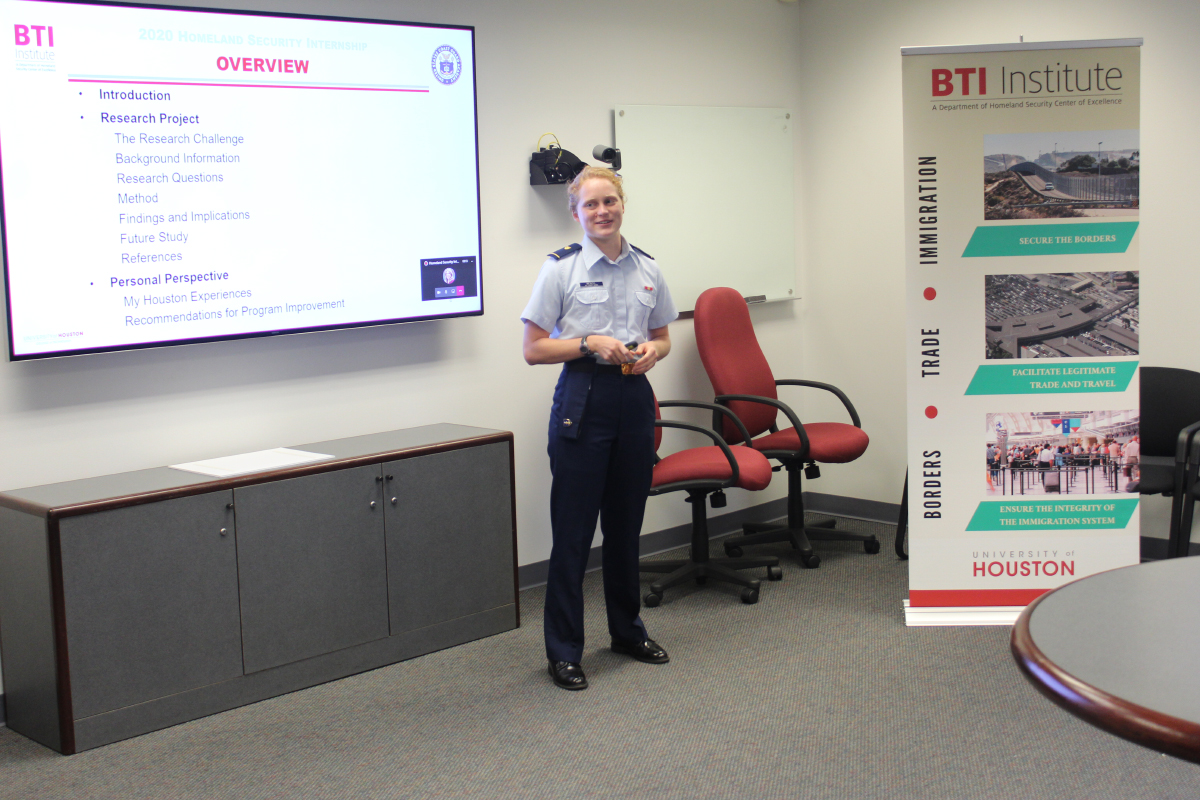
S. June Wenzel, Cadet 1/c, United States Coast Guard Academy
Research Mentor: Skye Cooley, Ph.D., Assistant Professor of Strategic Communications, Oklahoma State University
Project: Intersecting Policy and Narrative: The Migrant Journey
Focus: The ultimate goal of the research was to use narrative framework to inform U.S. policymakers of commonalities and areas of cooperation. By utilizing media sources from the U.S., Mexico, and Northern Triangle nations, the researchers were going to better understand the migrant narrative and how that could impact policy development. Narrative themes were identified and compared across specific time periods based on U.S. immigration policy.
"The narrative policy framework can unite people's narratives and take the subjective, qualitative data and make it into numeric, scientific information that we can actually analyze and distill into numbers that we can make repeatable."




